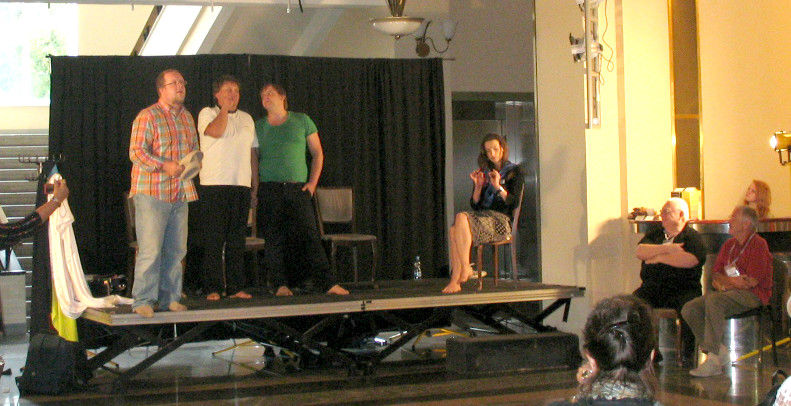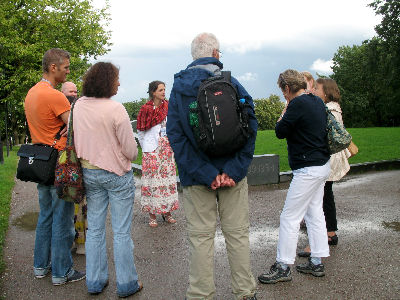Baltic Congress 24.-26. 8. 2012 Tallinn
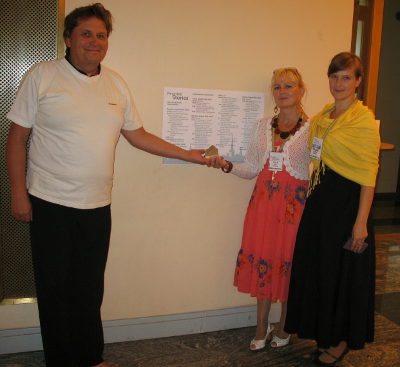 VII Baltic Congress Peoples' Stories 2012 in Tallinn, Estonia
VII Baltic Congress Peoples' Stories 2012 in Tallinn, Estonia
| Die Baltischen Staaten organisierten 2012 einen Psychodrama Kongress in Tallinn. Organisatoren waren die Mitglieder der estischen Organisation. Der Kongress fand statt in dem Volkshaus von Tallinn. Eingeladen waren Psychodramatiker und Interessierte aus Europa. |
This Moreno Conference is for stories from different countries and nations to meet in psychodrama sessions.
The motto of this conference: The People are telling stories and passing them on from generation to generation in order to overcome disasters, to believe in happiness and sustainability, to remain and remember and sometimes, to forget. Narrative is an important tool to preserve the identity of nations.
The organisation commitee: Aivar Simmermann, Pille Isat, Küllike Lillestik
Nearly 200 peoples from EU, Israel, Russia, Turkey, came to the north of Europe to Tallinn. They had the chance to speak and to act with collegues of very different fields of work. To this belonged the dispute with our history, the incedent in different forms of companies, questions in connection with other peoples i.e. therapeutic forms.
The PRE-CONFERENCE PROGRAMM (Thursday and Friday till noon)
Marcia Karp (UK), Barriers to intimacy in families
Judith Teszary (Sweden), Transgenerational influences in historical frame of reference. Visible and invisible loyalties
Jacob Gershoni (USA), Utilizing the triadic system in sharing inter-generational and personal narratives
The CONFERENCE PROGRAMM
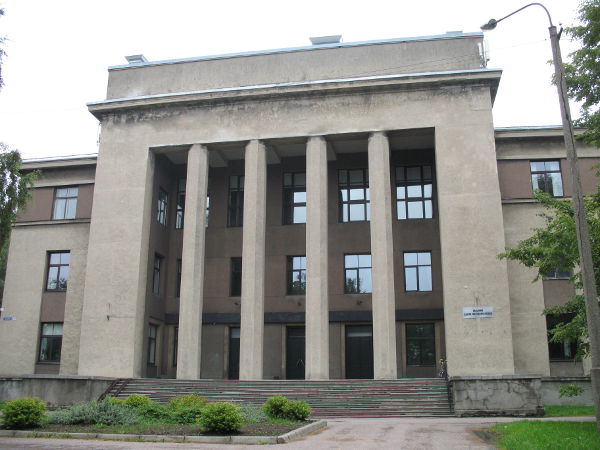 The Folkhouse were the conference took place
The Folkhouse were the conference took place
The Workshops:
The War: Pre- and Post-World War II stories, generations, secrets, traumas, etc.
Kirsti Silvola & Sisko Karinen (Finland), We, children of war
Eduardo Verdu (Norway) & Reijo Kauppila (Finland), The great illusionists about great powers, a few men and the killing of 70 million people
Marjut Partanen-Hertell (Finland), Different experiences, different worldviews, different destinies sociodrama
Maija Molokailima (Latvia), The visible and invisible relationship ties
Ruuda Palmquist (Estonia/Sweden), My parents lost their homeland, but I lost my dog
Endel Hango (Estonia), Bringing out the war within (play-back)
The Wall: Dividing Europe in two, borders, separation, connections, power, etc.
Marcia Karp (UK), Secrets in the Family
Inara Erdmanis (Sweden/Latvia), What's on the other side
Eva-Karin Ström (Sweden), Opposition, open or hidden
Stylianos N. Lagarakis (Greece), Twice a stranger: birth in on plave, growing old in another place and feeling a stranger in the two places
Christa Waibl-Wiesner & Nikolas Anastasiadis (Austria), ....is it really my story? Life can be quite challenging and rewarding at the same time, you never know!
Pille Isat (Estonia), Is it needed to tell a story? Healing aspects of spoken and unspoken stories
After the Wall was taken down: Union, independence, joining, freedom, rules, new wars, builing of new identities, new friends and new enemies....
Yaacov Naor (Israel), Breaking the silence through psychodrama.
Ioanna Psalti (UK), Who's in the mirror? Allowing the images to tell their story
Inara Varpa & Gita Paspârne (Latvia), Relationships in Friendship: myself - another
Ekaterina Mikhaylova (Russia), Who could know! Future projections and reality testing 20 years later
Igeta Gaike (Latvia), Rise your voice to the sky!
Lars Tauvon (Sweden), The Challenge of Freedom: Where do we go from here Hopes, fears, ideals and old ghosts
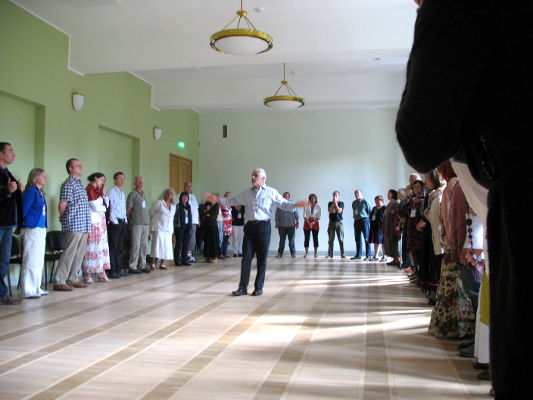
Three of the Workshop Leaders
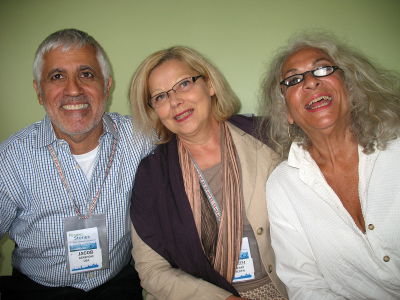
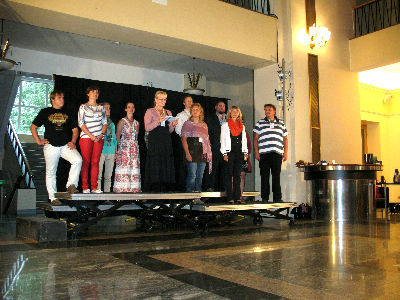
Play-back for all
Everyone of the attendant could tell a story to the leader. The four players of the playback theater made their story out of it. The leader asked the teller if she/he could accept the played story or not.
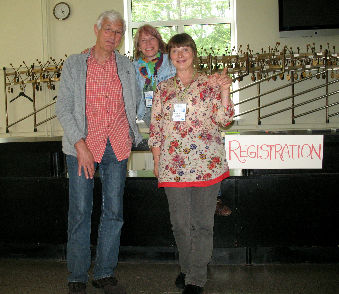
Friday afternoon were planned City tours in smaller groups to see Tallinn from the different viewpoints of nations: Estonians, Germans, Russians, Israelis, Danes, Swedes, Finns etc.
The Tour leaders are Estonian psychodramatists. They talk about their personal and historical stories and they combined this with the story of Tallinn. We learned to see how the psychodramatists felt in their city.
Tell us,
tell me,
tell her
tell them
Many different views
| Tallinn in the night |
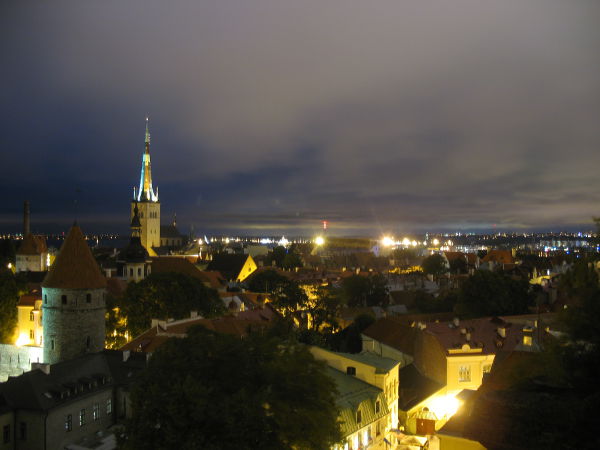 |
With a ship you need one hour to Helsinki. The geografic near is the sign for the near of language and culture between Estland and Finland.
| The sea | The ships |
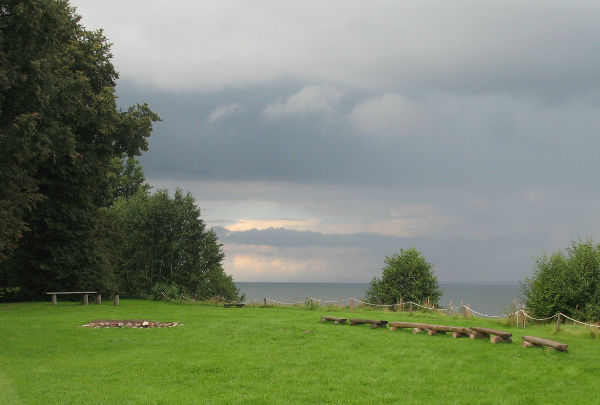 |
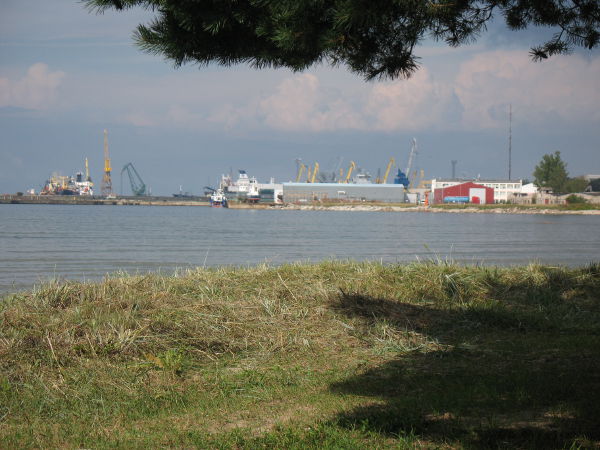 |
- Anmelden oder Registrieren um Kommentare zu schreiben
